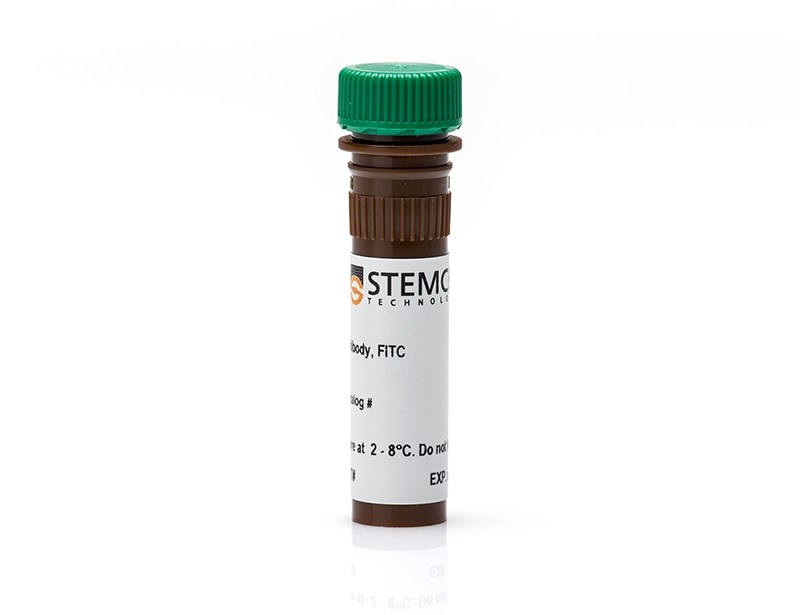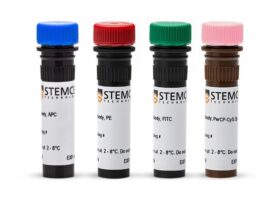
Overview
The SK7 antibody reacts with the ~20 kDa CD3ε subunit of the human T cell receptor (TCR)/CD3 complex, which is expressed on the surface of ~95% of mature T cells and NKT cells, and variably on thymocytes. A majority of T cell neoplasms also express CD3. The CD3 complex, which is assembled from combinations of CD3γ, δ, ε, η and ζ subunits, associates non-covalently with the TCR and is involved in transducing antigen recognition signals into the cytoplasm of T cells and in regulating the cell surface expression of the TCR. Activation of T cells by the TCR involves the cytoplasmic tails of the CD3 subunits, which are structurally related type 1 transmembrane proteins and members of the immunoglobulin superfamily. Mutations in the CD3 subunits have been associated with various immunodeficiency disorders, including severe combined immunodeficiency (SCID).
Subtype: Primary Antibodies
Target Antigen: CD3
Reactive Species: Human; Chimpanzee
Conjugation: FITC
Host Species: Mouse
Cell Type: T Cells
Application: Cell Isolation; Flow Cytometry
Area of Interest: Immunology









